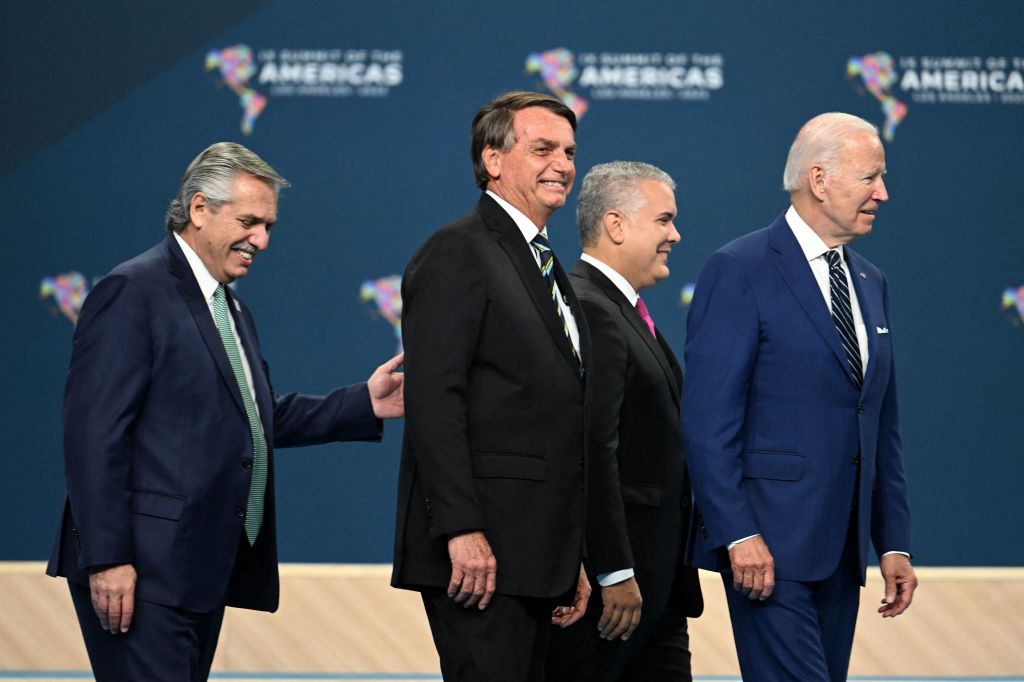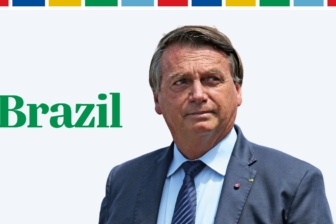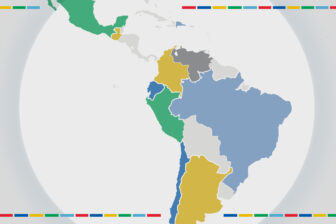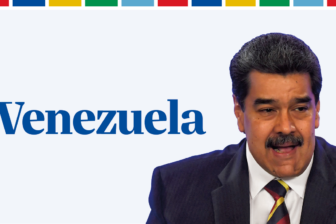RIO DE JANEIRO — Even more than achieving the status of a developed country, many Brazilians want for Europe, China and the U.S. to recognize their country as an important actor on the world stage. The desire for international respect is not confined to the country’s political elite: The average voter shares it, too.
And even more than the traditional left-right divide, it is this craving for respect abroad that defines the electorate’s thinking on foreign policy, according to a set of surveys by the Brazilian Center of Analysis and Planning. As this year’s presidential election approaches, both leading candidates—current President Jair Bolsonaro and former President Luiz Inácio Lula da Silva—are seeking to appeal to it in order to gain an edge, but in different ways. Other candidates, such as Ciro Gomes and Simone Tebet, are pursuing similar strategies, but with much less success.
For his part, Lula prefers to portray himself as a statesman capable of commanding attention abroad. For example, on a trip to Europe in November 2021, the former president visited leaders from countries that are highly prestigious among the Brazilian electorate: France, Spain and Germany. By meeting with French President Emmanuel Macron and German Chancellor Olaf Scholz, Lula sought to counter the sense of Brazil’s isolation under Bolsonaro and send a message that he, and by extension his country, was still respected and admired in Europe.
The contrast was not lost on Bolsonaro, who, when Lula was visiting Spanish Prime Minister Pedro Sánchez, jealously replied: “I saw on the news: ‘Bolsonaro disappoints, Lula is a success.’ Oh, for God’s sake.”
A month later, however, Lula gave a controversial interview to Time magazine about the war in Ukraine, going as far as to argue that the Ukrainian President, Volodymyr Zelensky, bore responsibility for the conflict. Immediately, the Brazilian mainstream media, which is primarily pro-Ukraine, harshly criticized the former president. Several European diplomats followed suit, casting a shadow over Lula’s international image and his successful trip to Europe.
Still, it seemed Lula achieved his main objectives with the Time interview. He showed Brazilian voters he continues to be admired by international media and put Bolsonaro on the back foot, given the current president’s own lack of prestige in such outlets. (The president’s supporters responded that Time was a declining and unimportant outlet.) Even the backlash to Lula’s stated position kept him in the headlines, sidelining Bolsonaro.
Lula’s messaging on foreign policy also tries to be ecumenical, seeking to appeal to people regardless of ideological preference while placing himself above petty domestic divisions. For example, Lula’s suggestion in the Time interview that world leaders should organize a conference between Biden, Putin, Zelensky and himself to discuss peace in Ukraine may seem naive to Western ears. But it is targeted not at Ukrainians or international audiences, but to Brazilian voters who crave international recognition and react positively to the idea of Lula as mediator of the biggest global issue of the moment.
Bolsonaro’s ideological statesmanship
While Lula uses foreign policy to portray himself as a statesman above ideological cleavages, Bolsonaro uses it to shore up his profile as an unabashedly right-wing political leader, who compares favorably with other far-right leaders internationally.
Unlike Lula, who had a long history of participation in elections and strong control over the country’s left before entering office, Bolsonaro had to fight to distinguish himself from others on Brazil’s immensely fragmented right-wing political spectrum. His 2018 election victory allowed his allies to achieve dominance in the right-wing space and portray Bolsonaro as the only politician capable of beating Lula.
It is with this in mind that Bolsonaro uses foreign policy issues to reinforce his image as a conservative leader, admired by right-wing groups abroad, who is fighting against the “globalist” system represented by Lula and the Workers’ Party.
After Turkish Foreign Minister Mevlüt Çavuşoğlu visited Bolsonaro in May, for example, he left the meeting saying that the Brazilian president had suggested a joint visit to Moscow by world leaders including Turkish President Recep Tayyip Erdoğan to Moscow, to support Putin.
Bolsonaro’s intention in suggesting such a meeting was likely not with any real intention of conducting it—but rather to send the message to his electorate that he is a respected figure among like-minded (i.e., far-right populist) leaders.
Bolsonaro is keen to frame his foreign policy as a struggle between different ideological worldviews. A few weeks before the start of the Summit of the Americas in Los Angeles, President Joe Biden sent former Senator Christopher Dodd to convince a hesitant Bolsonaro to attend. After accepting the invitation, Bolsonaro took to social media to say that he, and by extension Brazil, was highly respected internationally, even among leaders of different ideological orientations.
A key difference emerges when comparing the ways that Lula and Bolsonaro try to appeal to Brazilians’ desire for international recognition. Lula’s strategy targets the majority, trying to convey an image that abstracts away from ideological differences, while Bolsonaro wants to mobilize right-wing voters. Foreign policy, for him, is just another instrument of fomenting a conservative cultural revolution. Judging by current opinion polls, it’s the more broad-based strategy that looks set to prevail in the election this October.
—
Guimarães is academic director of the Centro Brasileiro de Relações Internacionais (CEBRI) and professor of international relations at the University of São Paulo
Dias Leite is CEO of CEBRI






